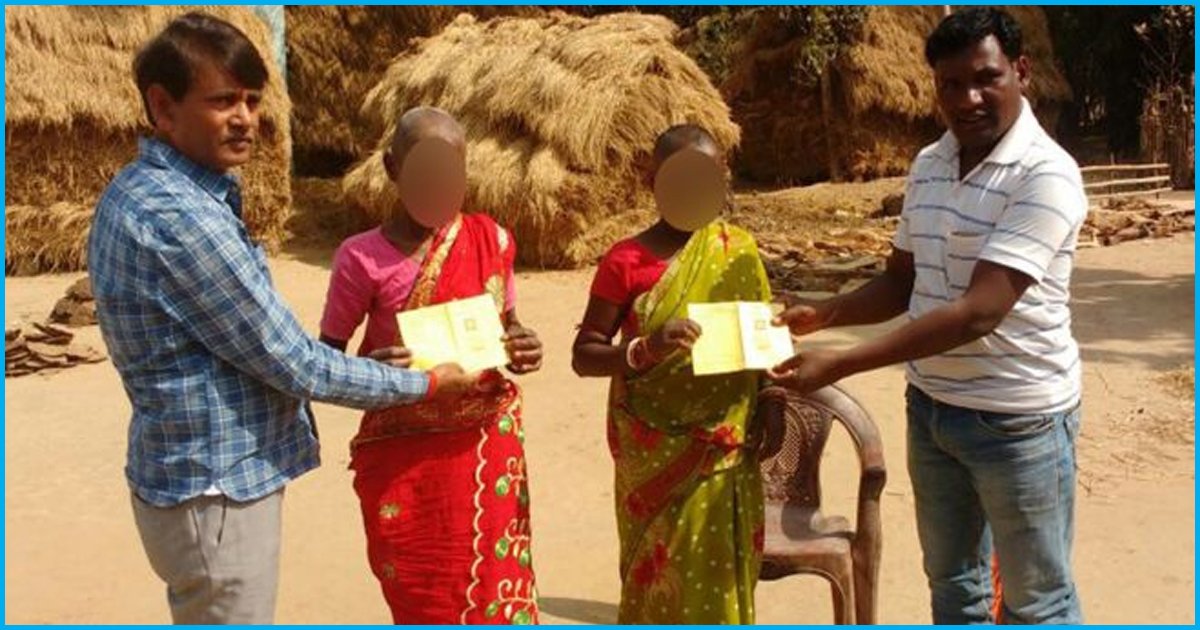Jharkhand: Police Arrest 11 People For Abusing 2 Women Accused Of Practising “Witchcraft”
26 Feb 2018 7:05 AM GMT
Police in Jharkhand arrested 11 people in northern Jharkhand for abusing two women who were accused of practising “witchcraft”.
According to BBC, the 65-year-old mother and her 35-year-old daughter were forced to strip naked, paraded along the streets and made to eat human excreta.
The two women had consulted an unqualified medical practitioner last week after a member of their family member passed away. The practitioner blamed them for the death, and they were subsequently accused of spreading “witchcraft” in the village.
They were taken to the cremation ground where their relatives flung human urine and faeces at them and forced the material down their throats.
“We were terrified,” the mother recounted to reporters. Nobody came to help them while they underwent this ordeal.
Witch Hunting: Still A Commonality In Some Indian States
According to the National Crime Records Bureau, 2,097 people were victims of “witch hunting” between 2000 and 2012. Jharkhand bags the first position in the number of cases reported for witch hunting while Madhya Pradesh, Rajasthan, Andhra Pradesh and Gujarat are not far behind.
People, mostly women, are targeted and branded witches whenever a calamity befalls the village – be it death, disease or drought. Witch doctors known as Ojhas, mostly men, are called upon to undo the supposedly evil influences of a witch. Many a times, victims and survivors of witch hunting are also women suffering from mental illnesses.
Unable to cure or heal people, Ojhas evade responsibility by claiming the existence of a “witch” somewhere in the vicinity. One word from an Ojha is enough to turn local residents into a frenzied mob that goes out to seek bloodthirsty vengeance and hunt a ‘witch’, usually a weak, lower-caste woman, and bring her to ‘justice’.
According to research conducted by Partners for Law in Development, witch-hunting is rooted in patriarchy, financial disputes, superstition and other personal and social conflict. More often than not, these conflicts arise out of jealousy or conflict and tension between the victim and their relatives, friends or acquaintances.
Given that India has a shortage of 83% specialist medical professionals in community health centres and the levels of education are low in all these areas, people’s belief in Ojhas, who serve as medicine-men, is strong. The lack of such infrastructure is partly responsible for the myriad atrocities, including physical and psychological torture, inflicted on vulnerable women across remote regions of the country. The ‘punishment’ meted out ranges from death to being banished from their homes.
What Has Been Done?
Although witch hunting is reportedly practised in atleast 12 states, only seven states have laws criminalising the practice – Jharkhand, Bihar, Chhattisgarh, Maharashtra, Rajasthan, Odisha and Assam. However, a large number of perpetrators are still let out on bail, and there is no system in place to re-arrest them.
Sometimes women travel from village to village, singing songs and performing plays to capture the attention of locals and telling women that witchcraft should be reported to the police.
In 2017, 13 victims of witch hunts received a compensation of $750 to $3000 by the respective state government. No one has been convicted in 86 cases filed since the implementation of the Prevention of Witch Hunting Act passed three years ago, largely due to the slow pace of the courts.
Even though Police have started running awareness campaigns and have provided women with extra security, there has been no significant decline in the superstitious practice, which merely exploits women.
 All section
All section














